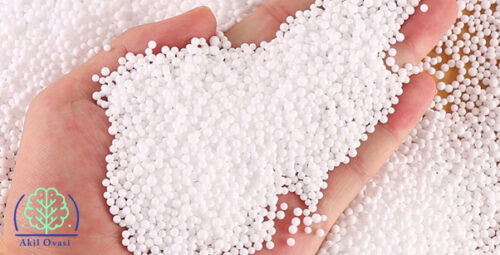Ammonium Sulfate Structure:
Ammonium sulfate [(NH₄) ₂ SO₄] was one of the first and most widely used nitrogen (N) fertilizers for crop production. Its high solubility provides versatility for a number of agricultural applications.
Today, manufacturers make ammonium sulfate by reacting sulfuric acid with heated ammonia. To get the crystal size best suited for the application, reaction conditions are controlled by screening and drying the particles until achieving the desired size. Some materials are coated with a conditioner to reduce dust and caking.
What is Ammonium Sulphate Fertilizer?
Ammonium sulfate fertilizer contains ammonium, nitrogen and sulfur in the form of sulfate that plants can take. Ammonium sulfate fertilizer has a crystalline structure, it is known as “sugar fertilizer” among farmers. Sulfur in the form of sulfate it contains is in a form to provide the needs of plants completely. As nitrogen is formalized in the form of ammonium, it increases the plant’s need for phosphorus intake and provides productivity like all fertilizers applied before planting.
What are the Benefits of Ammonium Sulphate Fertilizer, Known as Sugar Fertilizer?
Economically suitable ammonium sulphate fertilizer also provides fast results after application. Thanks to its sulfur, it facilitates the plant’s uptake of nitrogen and provides support to the root, leaves, stem and branches of the plant during development period. It provides efficient products by making the plant resistant to diseases. Depending on the changing weather conditions, it helps the plant to be resistant in cold and hot conditions. It supports flowering and sprouting. It increases the size, hardness and flavor of the products and fruits.
Where is Ammonium Sulphate Fertilizer Used?
It is used very frequently especially in paddy, tea, grain, fruit and vegetable farming. It is the most popular fertilizer of calcareous soils. Ammonium sulfate fertilizer is easily used in the fields of onions, garlic, cauliflower, cabbage, sunflowers and many other crops.
How Should Ammonium Sulphate Fertilizer Be Stored?
Storage of ammonium sulfate is a little easier than other fertilizers. There is no legal regulation on the storage of ammonium sulfate. Ammonium sulfate fertilizer can be stored together with other fertilizers. It is not a problem if it is stored with sodium chloride or ammonium phosphate. Ammonium sulfate fertilizer does not have a special transport vehicle, it can be transported in any vehicle. Gloves must be worn during application, and it must not contact the skin.

Advantages for conventional agriculture
As regards conventional agriculture, ammonium sulphate has the following benefits:
- Improves the organic content of the soil:ammonium sulphate provides a quantity of nitrogen in the form of nitrate, which improves the physical and chemical properties of the soil.
- It favors the assimilation of nutrients by plants, as it helps to improve the availability of nutrients for plant development, improving their growth and production.
- Increases drought tolerance:Ammonium sulphate increases the crop’s resistance to lack of moisture, due to its strong bactericidal and fungicidal properties.
- Reduces the cost of foliar applications and improves the strength of growing plants.
- Improves food quality, accelerating stem development and improving the appearance and taste of agricultural produce
- Reduces pest damagelowering the incidence of pests by facilitating the absorption of the nutrients available in the soil.
It also has all these industrial applications:
- Acid solution purifier.
- Glyphosate enhancer.
- Flame retardant.
- Food additive.
- Protein purification through fractional precipitation.


